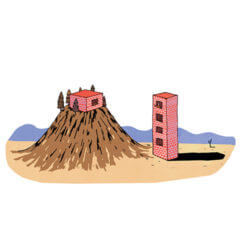Carceral Geography. It’s okay if you’ve never heard of it. The new field, dedicated to the study of the geographical context of incarceration — i.e., the nature of spaces designed for imprisonment — was actually just recognized by the Royal Geographical Society with the Institute of British Geographers (RGS-IBG) within the last year with the formation of its Carceral Geography Working Group (CGWG). But the area of study is picking up steam, with the International Conference for Carceral Geography — organized by CGWG and held at the University of Birmingham in Birmingham, England — recently celebrating its second year. “It’s fair to say that the first and second conferences have been instrumental in crystallizing the community of researchers in this area,” said Dominique Moran, Ph.D., chair of the CGWG and University of Birmingham professor. “Incarceration and confinement have traditionally been researched by criminologists, but recently, stimulated by the rise of incarceration rates in the Anglophone world and the widespread detention of migrants, geographers have become interested in the spatial aspects of these processes.”
AROUND THE GLOBE Though the event is still young, it was attended by academics in all career stages and from across the globe — undergraduate students and senior professors alike came from Switzerland, New Zealand, the United States, and other countries to participate. The event was “highly interdisciplinary,” according to Moran, with researchers from the fields of geography, criminology, sociology, history, theater studies, architecture, and art in attendance and presenting their work. “It was also important to us that the event had a reach beyond the academy, so we welcomed presentations and attendance from policymakers and third-party organizations,” Moran said, such as the Norwegian Correctional Service.
NO BARRIERS TO ENTRY The University of Birmingham’s School of Geography, Earth and Environmental Sciences and its Centre for Crime, Justice and Policing sponsored the event. With the university’s support, attendance was free. “This was important in enabling students and early career researchers to attend, and in increasing the reach of the event beyond those able to afford the costly registration fees,” Moran said, “which are common for academic conferences.”


